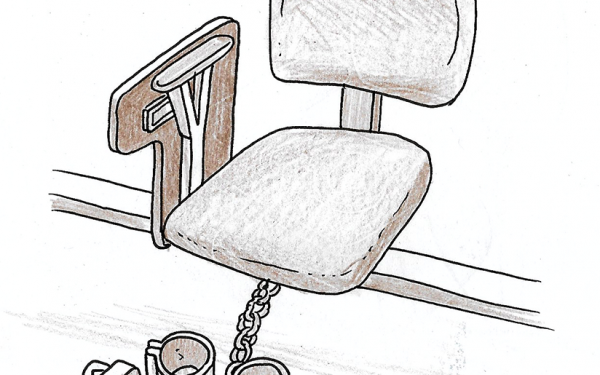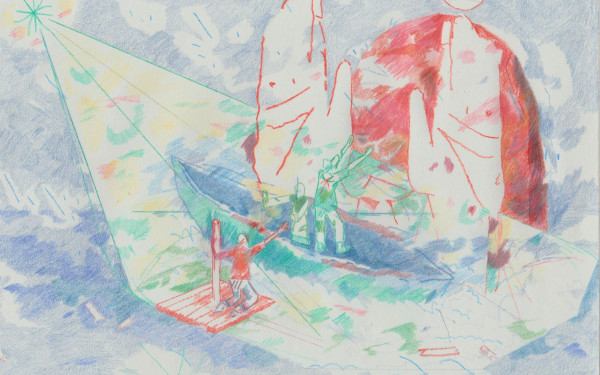Territorial Acknowledgements Aren’t Enough
Despite Its Efforts, Concordia Has a Long Way to Go
Concordia is very proud to talk about it’s initiative to include more Indigenous leaders within the university, but it seems as though the continuation of promoting Indigenous education is lacking.
For years, Concordia has been vocal about their dynamism within Indigenous communities, by establishing an Indigenous leadership group which oversees Concordia’s priority areas in implementing recommendations from the Truth and Reconciliation Commission of Canada.
But much of the progress that has been made over the years has either dissolved and projects remain inactive.
Other than the territorial acknowledgements before most—if not all—Concordia events, what progress has Concordia done besides just a couple of sentences said at fast-pace before moving on to the main event?
Concordia needs to be held accountable for initiatives that have been left unattended.
The first ever recorded Indigenous education introduced at Concordia was in 1980, when an Indigenous media course in the communications department was implemented for students. For now, only two 400 level classes in the Communications department offer courses on Indigenous media.
Later, in 1992, the creation of Native Awareness week was set in place to annually celebrate Indigenous projects through talks, panels, and workshops. The initiative later grew in 2015, when First Voices week was implemented as a way to celebrate Indigenous culture at Concordia. This year, the week had a massive turnout, according to Sarah Paul, one of the coordinators of the First Voices.
Paul explained that the turnout of the events was incredible. More specifically during the Understanding Allyship: Panel Discussion and Workshop, where attendees had to sit on the floor because they ran out of seats.
“First Voices week is a celebration week, it is not an awareness week,” said Paul.
But why is First Voices Week, a celebration of Indigenous cultures at Concordia, only a week long? And why is it held during Black History Month? Plus, it’s held in February, the shortest month of the year.
“As minorities, we have little time devoted to us and we don’t need to be overlapping each other and taking each other’s space,” explained Paul.
Concordia’s drive to include more Indigenous-led courses didn’t stop at the communications department. In 1993, the Native Access to Engineering program was established at Concordia. It was founded as a way to address the low participation rate of Aboriginal people within the applied sciences in Canadian schools. However, the program dissolved in 2006, after the professor took his pension.
Years later in 2001, students were able to take a Native studies minor, but it wasn’t until nine years later in 2010 that they implemented the First Peoples Studies program. That being said, it’s not a stand alone department, it’s under the School of Community and Public Affairs, which lacks Indigenous professor representation.
“Personally, I would like to see improvement and priority made on the First Peoples Studies program. I don’t think that it is necessarily a priority for Concordia as much as it should be,” said Paul.
By 2016, a response to the TRC was published by Concordia’s Indigenous Direction committee, which should remain active until June 2019. The three-year appointment mandated them to come up with strategic plans to seek direction from the Indigenous community, and “give them the support to make a positive difference,” explained Graham Carr, who is part of the committee, in a Concordia article.
In that same year, an Indigenous Student Council committee under the Concordia Student Union was implemented, but it too is currently inactive.
Most of the Indigenous representation at Concordia are leaders who are educated, well-versed, and have something to give back to the university, be it through research, collectives, or grants, all to give Concordia a good name.
As an institution with a promising Indigenous population, Concordia needs to be held accountable for the lack of funding and practice for Indigenous students. These students are at the heart of change, and Concordia has turned its cheek to the ones who are able to give brownie points to the university.
In August 2018, Concordia announced an initiative to “Indigenize,” or “decolonize” the community. For the past months, a series of events were held, mostly panel discussions that open to the public, to talk about Indigenous peoples at Concordia and Montreal.
But not much has been proven in terms of Indigenizing the administration, faculty and staff.
Concordia lacks perspective, and it lacks valid Indigenous education. There is much progress that needs to be made within Concordia before they can honk their horn about Indigenous inclusivity.
Indigenous students, faculty and staff deserve proper recognition, even when it’s not to Concordia’s advantage.







